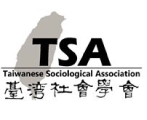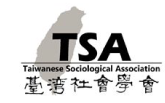主持人/ Chair:胡力中
評論人/ Discussant:顏詩耕(國立中正大學社會福利學系)
發表人/ Presenter:顏詩耕(國立中正大學社會福利學系)
題目/ Title:台灣大遷移:兩個世代的遷移經驗
摘要/ Abstract:
從1960年代中期開始,台灣島內出現數波大規模人口流動,許多年輕勞動人口離開中、南部農村,尋求北部或南部的就業機會;隨著產業結構轉型與變遷,第二級產業工作機會流失,部分中壯年遷移者選擇返回中、南部家鄉,結束離鄉生涯(林季平 2005)。過去雖已有許多研究指出不同時期的台灣島內遷移方向,以及遷移者的社會人口特質(如洪嘉瑜、銀慶貞 2008),但甚少研究從世代的角度出發,觀察出生在1950至1970年代、深刻參與台灣大規模人口流動之行動者不同生命歷程階段的遷移經驗。本研究合併1984年第一期至2020年第八期臺灣社會變遷基本調查綜合問卷組資料,捕捉1950-1964、1965-1979兩出生世代在其20至55歲勞動年齡的遷移經驗。邏輯迴歸模型的結果指出,1950-1964世代未住在15歲以前成長的縣市、具遷移者身分的傾向隨年齡提高,特別是成長於雲嘉南地區;相反地,1965-1979世代具遷移者身分的可能性則在45歲後逐步下降,尤其是中彰投、宜花東地區。這樣的分析顯示前一世代持續離鄉,以及後一世代的返鄉傾向。這樣的趨勢因個人性別、教育程度而有所不同。例如,1950-1964世代成長於桃竹苗地區男性離鄉傾向增加幅度遠低於女性;此外,1965-1979世代雲嘉南、高高屏、宜花東男性離鄉傾向仍隨年齡提高而非降低。教育程度方面,1965-1979世代成長於北北基或高高屏地區且教育程度為國中及以下在其年紀較輕階段便傾向結束遷移狀態。本分析勾勒出台灣人口流動的複雜樣貌。
關鍵字:國內遷移、遷移篩選、世代
發表人/ Presenter:
Fang-Yi Huang, Department of Sociology, Soochow University
Chung-Yang Yeh, Department of Sociology, Soochow University
Jia Ying Lee, Department of Social and Policy Sciences, Yuan Ze University
題目/Title:Gender pension gaps in Taiwan: does cohort matter
摘要/Abstract:
This study examines the gender disparity in pension systems in Taiwan in past decades, applying a life course perspective. Proliferated literature found that interruptions in women's careers, primarily due to caregiving responsibilities, result in reduced pension benefits during their later years. The prevailing male-oriented Taiwanese labor market further compounds these gender inequalities, indicating that disparities are largely rooted in employment conditions. Taiwan's social insurance pension system has promoted greater gender equality over recent decades. Factors contributing to a decrease in gender pension gaps, particularly in younger cohorts, include an increase in women's access to higher education, a rise in their participation in the labor force, and a declining fertility rate. Despite these improvements, significant obstacles persist. The entrenched occupational sex segregation, persistent gender wage gaps, and prevailing gender stereotypes in the labor market continue to impact Taiwanese society. These factors imply that gender pension gaps may have remained substantial in Taiwan over the past decade. The study is funded by National Science and Technology Council (no. 112-2410-H-031-082-). Utilizing Taiwan data (2007, 2010, 2013, 2016 waves) from the Luxembourg Income Study Database and applying multiple regression models, our findings affirm that while gender pension gaps in younger cohorts are less than in older ones in Taiwan, overall, gender pension gaps remain significant across both public and private pension schemes. Therefore, to effectively address gender inequalities, the design of pension systems needs meticulous evaluation and strategic adjustment by policymakers.
Keywords: Gender, Pension, Taiwan
發表人/ Presenter:鄭皓駿
題目/Title:The Variability of Age at First Marriage across Birth Cohorts and Education Levels: The Case of Taiwan
摘要/Abstract:
The variability of age at first marriage has implications for the destandardization of life course and the deinstitutionalization of marriage in recent decades. Previous studies, based on Western societies, suggest a more dispersed variability in recent cohorts. However, despite the rise in women’s education, the universal ideology of formal marriage, the powerful link between formal marriage and childbearing, and collectivism in East Asian societies may constrain variability in marriage timing. In addition, women with different levels of education experience different life course sequences and interactions with marriage, leading to heterogeneous changes in the variability. Using the Women’s Marriage, Fertility, and Employment Survey in Taiwan, this article presents a representative case of changing marriage and childbearing behaviors in East Asia. Our results show that the variability among women without a high school degree has become more dispersed in more recent birth cohorts. In contrast, the variability of age at first marriage among highly educated women has remained consistent. The educational differences became more salient in recent cohorts, especially in women born after 1960. Our findings contribute to the literature on how the life course and the institution of marriage have diverged across education levels over birth cohorts in East Asia.
Keywords: Variability of Age, First Marriage, Life Course, Taiwan, East Asia


